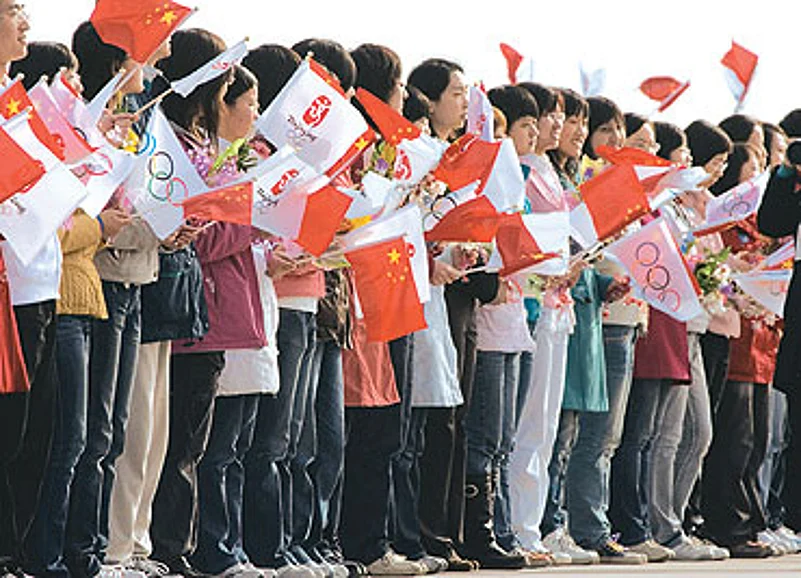
Sidney Rittenberg, an American business consultant who lived in China for more than 30 years through the most turbulent years of the Communist revolution, says anything ordinary Chinese people perceive as an attack on them is truly unfortunate. "The games are not a property of the Communist Party," he says. "They are in the hearts of all Chinese people."
A survey released by the games organisers in early March found that 79 per cent of the capital's residents were "eagerly anticipating the Olympics". About three-quarters of all respondents, drawn from 20 Chinese provinces, professed "overwhelming excitement" at the approach of the games, according to a report in China Daily.
Among Beijing citizens though, there are those who were greatly annoyed at the security blanket thrown around the capital when the torch first arrived from Greece in early April and was greeted with a grand ceremony in Tiananmen Square. "I cycled around all sides of the square and there was not a single opening for ordinary people like myself to take a look at the torch," said Yang Longhuai, a retired worker in his late 60s. He tried to reason with the security guards that if the Beijing Olympics were the "people's Olympics" as the government had promised, then Beijingers should be allowed to be part of them. "They (the security) just shook their heads and kept saying 'these are the rules'," Yang complained.
Expressing dismay at the leeway given to protesters in foreign countries, Beijing has gone into overdrive to ensure nothing would mar the torch relay on Chinese territory. Public attempts to criticise the government's casting of the Olympics as a celebration of the ruling party's successes have been abruptly silenced.
In February, political activist Yang Chunlin was sentenced to five years imprisonment for posting an internet appeal, which said, "We want human rights, not Olympics." Yu Changwu, a farmers leader in the northeastern province of Heilongjiang who had protested the illegal seizure of their land by shouting "we want land, we don't want the Olympics", was sentenced to labour camp for two years. The charges: "endangering state security."
"I don't sympathise with protesters who disrupt the Olympic torch, but I believe they do it out of despair," says Peng Jianmin, a Beijing resident. "Protests are not allowed in China and when you don't have an outlet to vent your anger you look for unusual ways out. For some, the Olympics are the only chance to be noticed or heard."





















